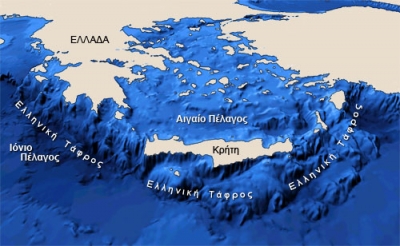For centuries, seafarers have enjoyed observing whales travelling across vast distances on the high seas or dolphins accompanying them on their voyages in front of the vessel’s bow.
However, the rapid increase of the number, size and speed of vessels in recent decades have significantly increased the risk of strikes with cetaceans.
Strikes are mainly recorded in heavy maritime traffic lanes where marine mammals breed, migrate or live. For some species, such as the North Atlantic whales Eubalaena glacialis on the east coast of the US-Canada and the sperm whale Physeter macrocephalus living along the Hellenic Trench, mortality due to ship strikes is so high that it may result to be the main cause of extinction for these species.
An important development for the avoidance of ship strikes with sperm whales is the recent issuance of two Notices to Mariners of the Hellenic Navy Hydrographic Service, regarding the existence of sperm whales along the Hellenic Trench, drawing the attention of seafarers to keep a lookout and take all necessary precautions to avoid collisions.
This initiative of the Hellenic Ministry of Shipping and Island Policy and the Hellenic Chamber of Shipping was the result of persistent efforts of environmental organizations WWF Hellas, Pelagos Institute and IFAW International.
HELMEPA congratulates the above-mentioned organizations for this important development and in cooperation with WWF Hellas is planning a series of informative initiatives for its Members, managing companies and seafarers, on the issue of avoiding ship strikes with cetaceans.
For further information:
MEPC.1/Circ.674 of ΙΜΟ with guidelines for minimizing the risks of ship strikes with cetaceans





